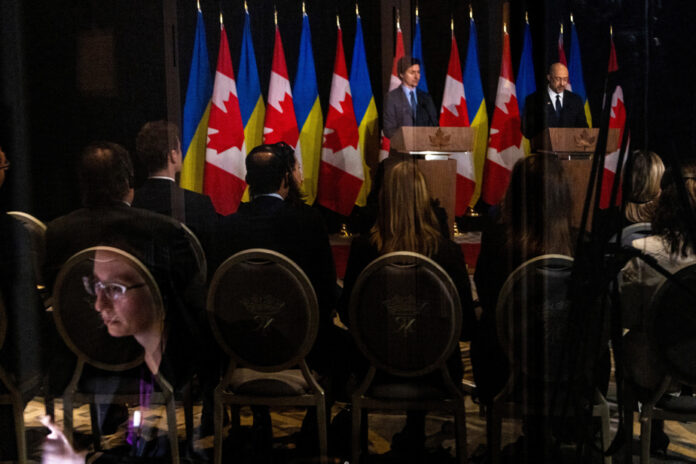A new employment contract recently presented to freelance interpreters working in Parliament has been denounced by their representatives. The International Association of Conference Interpreters (AIIC) believes that these new conditions risk further harming their hearing health and exacerbating staff shortages.
“We would like to put in this contract potentially dangerous working conditions for the next three years even before research on the effects of poor quality sound on performers has given conclusive results”, denounces in an interview Nicole Gagnon, who represents CNA members in Canada.
The proliferation of remote parliamentary work since the start of the pandemic has caused all sorts of problems for interpreters: tinnitus, nausea, migraine…
During the pandemic, the Translation Bureau notably reduced the working hours of interpreters for virtual parliamentary work without reducing their remuneration to better protect their hearing health. Now that the vast majority of elected officials are back in Parliament in person, he proposes returning to the same shifts as before, although parliamentary business can still take place in a hybrid fashion.
Thus, a team of three interpreters for six hours of work or a team of two interpreters for four hours of work would be required for in-person or hybrid work. The maximum exposure threshold to remote sound per performer would be 2 hours 30 minutes each day.
The reduced hours of one team of three interpreters for four hours of work and one team of two interpreters for three hours of work would only be applied in cases where all participants are remote.
“We consider this to be irresponsible,” laments Nicole Gagnon. She fears that this will exacerbate the shortage of interpreters and pleads for the adoption of a preventive approach at all times.
The Translation Bureau points out that the next open contract for freelance interpreters is still subject to consultation. “It is too early to tell if any changes will be made to the contractual provisions,” responded Michèle LaRose, media relations manager for the Department of Public Services and Procurement. She also indicated that the Bureau “takes into account best practices in interpretation in Canada and abroad, including with respect to the health and safety of interpreters. »
However, it was a decision rendered in February under the Canada Labor Code that forced him to require that all parliamentarians and committee witnesses use unidirectional microphones and to carry out random tests in the workplace.
The current employment contract for freelance interpreters with the federal government ends on June 30. CNA expects the tender with the new terms to be published in the coming months, in time for parliament to resume in September. It will then be up to each freelancer to submit a submission or pass.


















